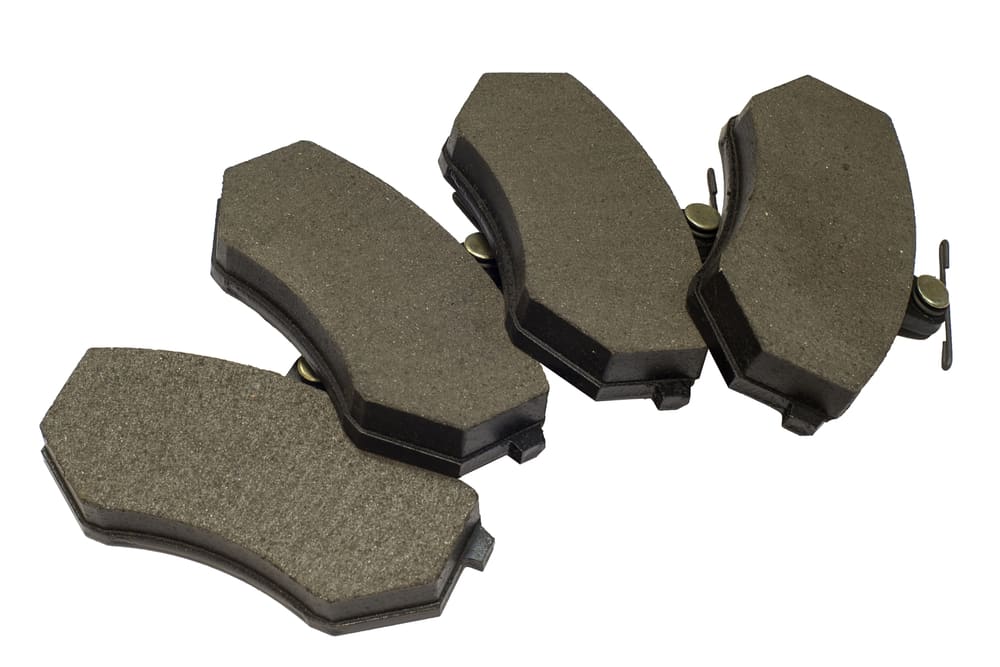

Brake pads sound cushy - however they’re anything but soft and snuggly. These components attach to the brake calipers in order to stop the discs (also known as rotors). The calipers squeeze the pads against the discs, which are mounted next to the tires, and this brings the whole operation to a halt when you press the brake pedal.
All this squeezing eventually causes the brake pads to wear down, and they’ll typically need replacing every 30,000-70,000 miles give or take, depending upon the usage and types of pads. Your brake pads need replacing when you hear that telltale squeal or squeak indicating the friction of metal-on-metal.
There are three different kinds of pads and each has its own strengths and weaknesses.
Organic: These brake pads were developed when health concerns arose surrounding the original disc brake pad material – asbestos. Organic pads are made of a composite of varying materials that may include rubber, glass, carbon, fiber and more. They’re affordable and quiet, but don’t last as long as other types.
Semi-metallic: These are made up of iron, copper, steel, or other metal, combined with fillers and a graphite lubricant. Semi-metallic brake pads perform better than organic, and do a good job drawing heat away from the discs. They’re more expensive, and noisier, than organic.
Ceramic: The newest of the players in the brake pad field, coming onto the scene in the 1980s, ceramic brake pads are made up of hardened ceramic material that’s combined with copper fibers. Ceramic lasts the longest and is quiet. However, ceramic pads don’t perform as well as semi-metallic in cold climates and also are the priciest.
Things to keep in mind to make sure you’re getting high quality brake pads:
Consider aftermarket: This is one of the few parts for which OEM may not trump aftermarket in quality. Many cars come off the line with organic pads which are the lowest performers and least enduring. There is a wide variety of quality brands and types to choose from.
Go with a trusted name brand: Brakes are one of those systems in your car that you want to make absolutely sure of getting genuine, high quality replacements.
Check the warranty: It may be hard to believe but you can get warranties on brake pads. AutoZone is famous for their extremely liberal warranty/return policy on brake pads. They even offer a lifetime replacement policy on some brands, so check first to see which the best warranty for the price is.
Certification: Look for D3EA (Differential Effectiveness Analysis) and BEEP (Brake Effectiveness Evaluation Procedures) certifications. These assure you that the brake pads meet certain minimum standards.
YourMechanic supplies top-quality brake pads to our certified mobile technicians. We can also install a brake pad that you've purchased. Click here to get a quote and more information on brake pad replacement.



